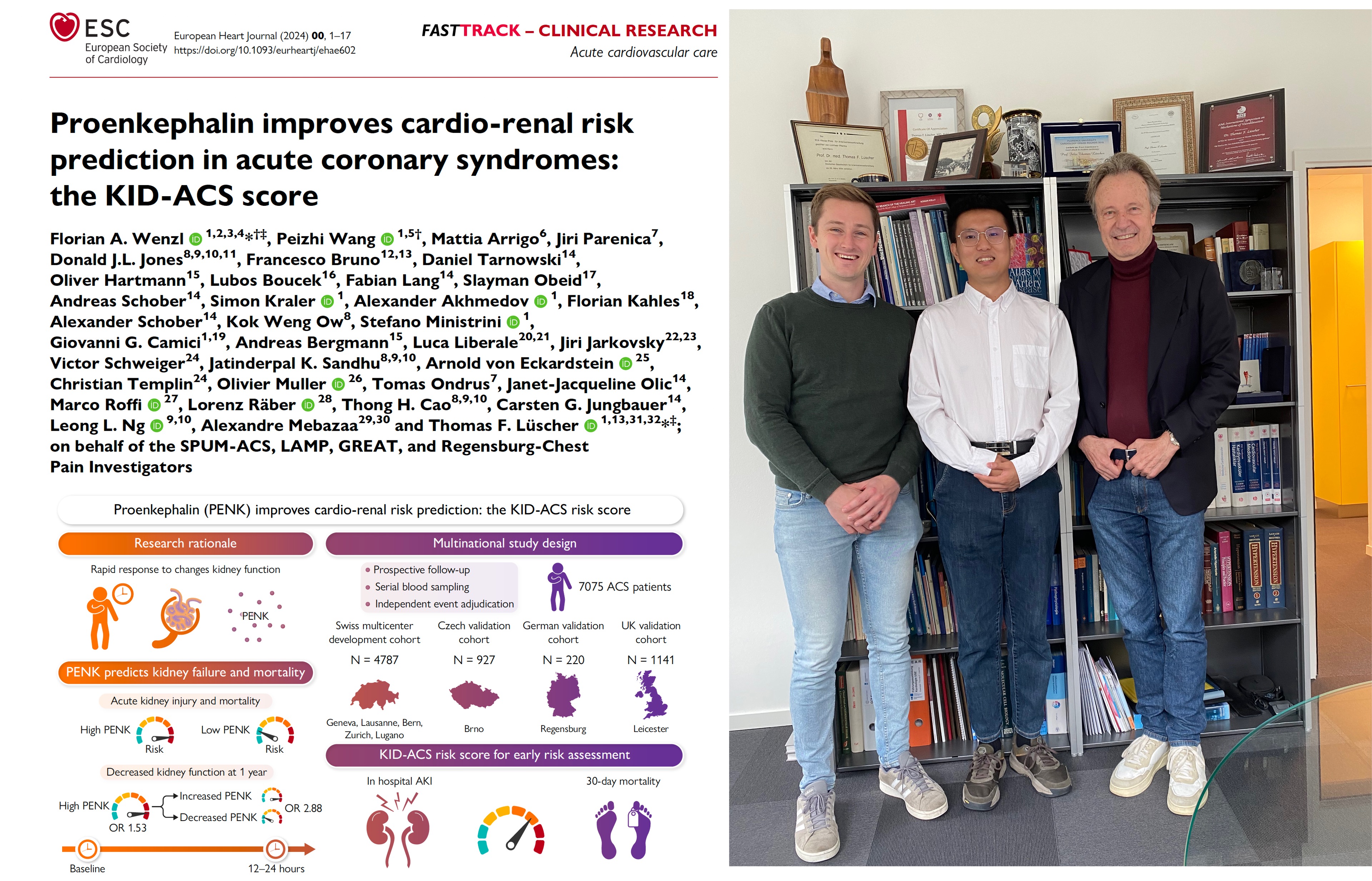Proenkephalin improves cardio-renal risk prediction

The early assessment of cardio-renal risk is essential to guide treatment decisions in patients with acute coronary syndrome (ACS). A combination of low cardiac output, renal congestion, and high comorbidity burden predispose the ACS patient population to poor renal outcomes. Circulating proenkephalin (PENK), a stable endogenous polypeptide with fast response to glomerular dysfunction and tubular damage, has emerged as a real-time renal marker.
In a recent study including 7075 patients with ACS form Switzerland, the UK, Czechia, and Germany, published in the European Heart Journal, Florian Wenzl and colleagues show that circulating PENK offers incremental value for predicting in-hospital acute kidney injury (AKI) and all-cause mortality in ACS.
A biomarker-enhanced score for cardio-renal risk prediction (KID-ACS risk score) was developed and externally validated in 3 independent patient cohorts. The simple six-item KID-ACS risk score integrates PENK and provides a novel tool for simultaneous assessment of renal and mortality risk in patients with ACS.